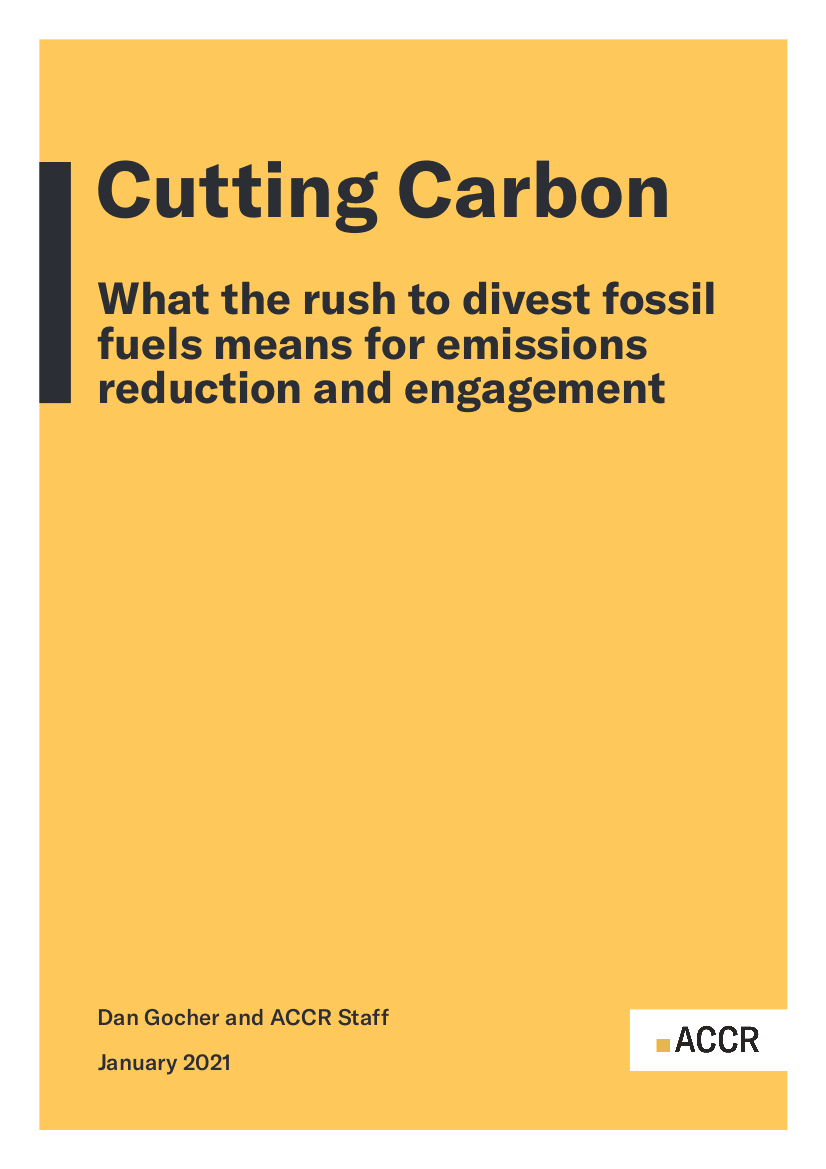Publication Cutting Carbon: What the rush to divest fossil fuels means for emissions reduction and engagement: 2. Recommendations
ACCR welcomes recent commitments to decarbonisation by several Australian investors. In order for these commitments to translate to a decline in emissions in the real economy, something which is urgently needed, we have three key recommendations for the sector.
Recommendation 1: The scope and detail of portfolio decarbonisation must be transparent
The current patchwork of voluntary declarations makes meaningful comparison between funds impossible, and is easily misinterpreted by clients and beneficiaries. Therefore:
Calculation of portfolio exposure to heavy emitting companies must be consistent and publicly available for all superannuation funds.
When divestment is the primary approach through which portfolio decarbonisation is pursued, it should be named as such, alongside the implications (or lack thereof) for immediate emissions reductions in the real economy.
Long-term net-zero portfolio targets must be supported by short- and medium-term targets.
Recommendation 2: Forceful engagement
Portfolio decarbonisation must include forceful engagement with high-emitting companies. Investors should provide a clear map of options for escalation, and a timeline for when they are willing to employ the full range of available engagement tools. These include (as outlined by the Net Zero Asset Owners’ Alliance): [1]
co-filing and/or supporting shareholder resolutions in support of decarbonisation strategies;
voting against directors, remuneration or annual reports;
voting against Mergers & Acquisitions (M&A); and
divestment.
Recommendation 3: Investment in climate solutions
Institutional investors must be prepared to allocate capital to climate solutions, from renewable energy to energy efficiency and emerging technologies. It is particularly important that capital divested from fossil fuels or emissions intensive companies is redirected to climate solutions.
The Institutional Investors Group on Climate Change, “Net Zero Investment Framework for Consultation”, August 2020, p28. ↩︎
